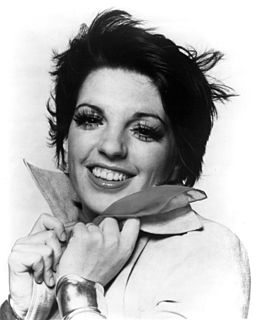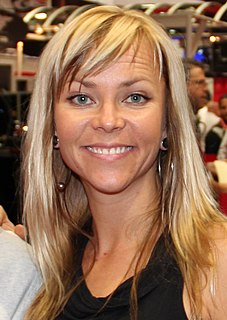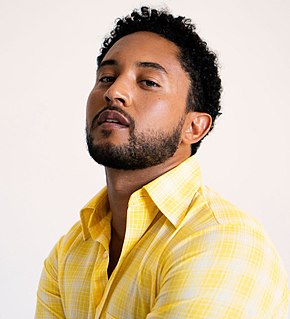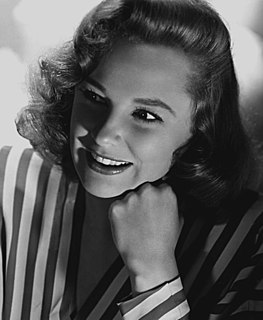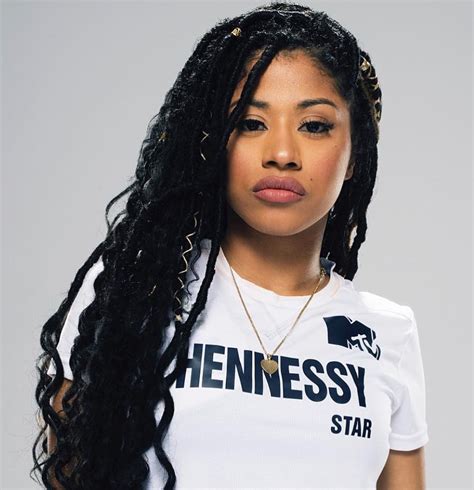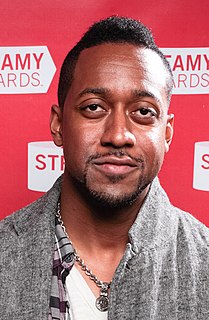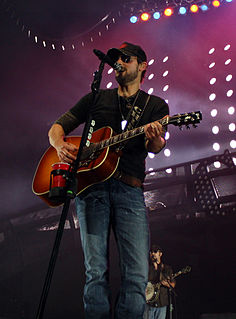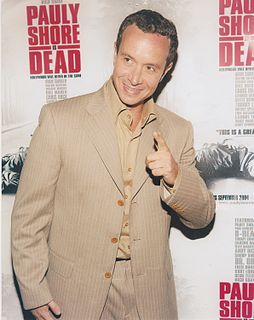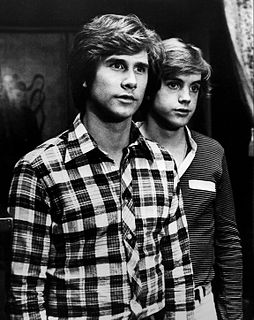A Quote by Molly Ringwald
I didn't have parents who were, you know, racing to get a reality television show, you know? Or looking to benefit in some way from their daughter's fame.
Related Quotes
This is an important distinction, because most of the modern philosophies that deny that we can know reality, and ultimately truth, make the mistake of constructing epistemological systems to explain how we know reality without first acknowledging the fact that we do know reality. After they begin within the mind and find they can't construct a bridge to reality, they then declare that we can't know reality. It is like drawing a faulty road map before looking at the roads, then declaring that we can't know how to get from Chicago to New York!
Reality television is to television what marble and gold are to real estate. The point is to dispense with the idea of taste. It's all id. The more unrestrained the better. We all know that 'reality' in reality television is not real. That anybody who would participate in reality television is a fake. But pretending otherwise makes them real.
Some parents were awful back then and are awful still. The process of raising you didn't turn them into grown-ups. Parents who were clearly imperfect can be helpful to you. As you were trying to grow up despite their fumbling efforts, you had to develop skills and tolerances other kids missed out on. Some of the strongest people I know grew up taking care of inept, invalid, or psychotic parents--but they know the parents weren't normal, healthy, or whole.
I look at television as a giant commercial for promoting this mission that I'm on. It's the best way for me to show that girls can be anything they set their minds to. I don't do it for the fame, and I most certainly don't do it for the money. It's sad that a lot of people want to get into television specifically for that reason.
Fame will take care of itself. One thing I've learned about fame is that, hey, you can't control it. You don't know how you're going to be received or perceived when you step out of a car, when you arrive some place. And you never really know how big something is going to get, so you have to set some standards for yourself, and just abide by those.
I'd still stand in line all day to get into an AC/DC show, because that was the one show when I was younger that kind of changed my life. Because it was a little wrong. I think I was 14 or 15, first concert without the parents, you know, and they were all worried because we were going to an AC/DC show, and it was an amphitheater.
I think that comes with a collaboration with the writers. I think that we get cast in edgier roles because we are a little more offbeat, so people - as we get to know the writers, and as the writers get to know us, they start to write around us more, and that's why I think the pilot is not always the best way to get to experience a new television show, because we're fitting ourselves into these characters. Whereas as the show evolves, they're writing the characters for us and for our strengths and weaknesses.
I was about 12 years old and I was sitting watching the television and it was some kind of talent show, you know, and on marches this monkey, this ape, in a pair of red-checked trousers with a little matching jacket holding a ukelele and it started jigging around playing it, and it was looking straight into the camera, straight at me, and I remember thinking, that's it, that'll be me, you know, that'll be me.
Could you not give me some sign, or tell me something about you that never changes, or some other way to know you, or thing to know you by?" — "No, Curdie: that would be to keep you from knowing me. You must know me in quite another way from that. It would not be the least use to you or me either if I were to make you know me in that way. It would be but to know the sign of me — not to know me myself.
I never thought of myself as being that good looking, I was an actor, people saw me on television, and then they start to think you're good looking because of that presentation. I was no better looking before the show, than after - and before the TV show I couldn't get a date to save my life. So what changed? Did I suddenly become more good looking? No. I got lucky, I got a TV show. That's what happened.




